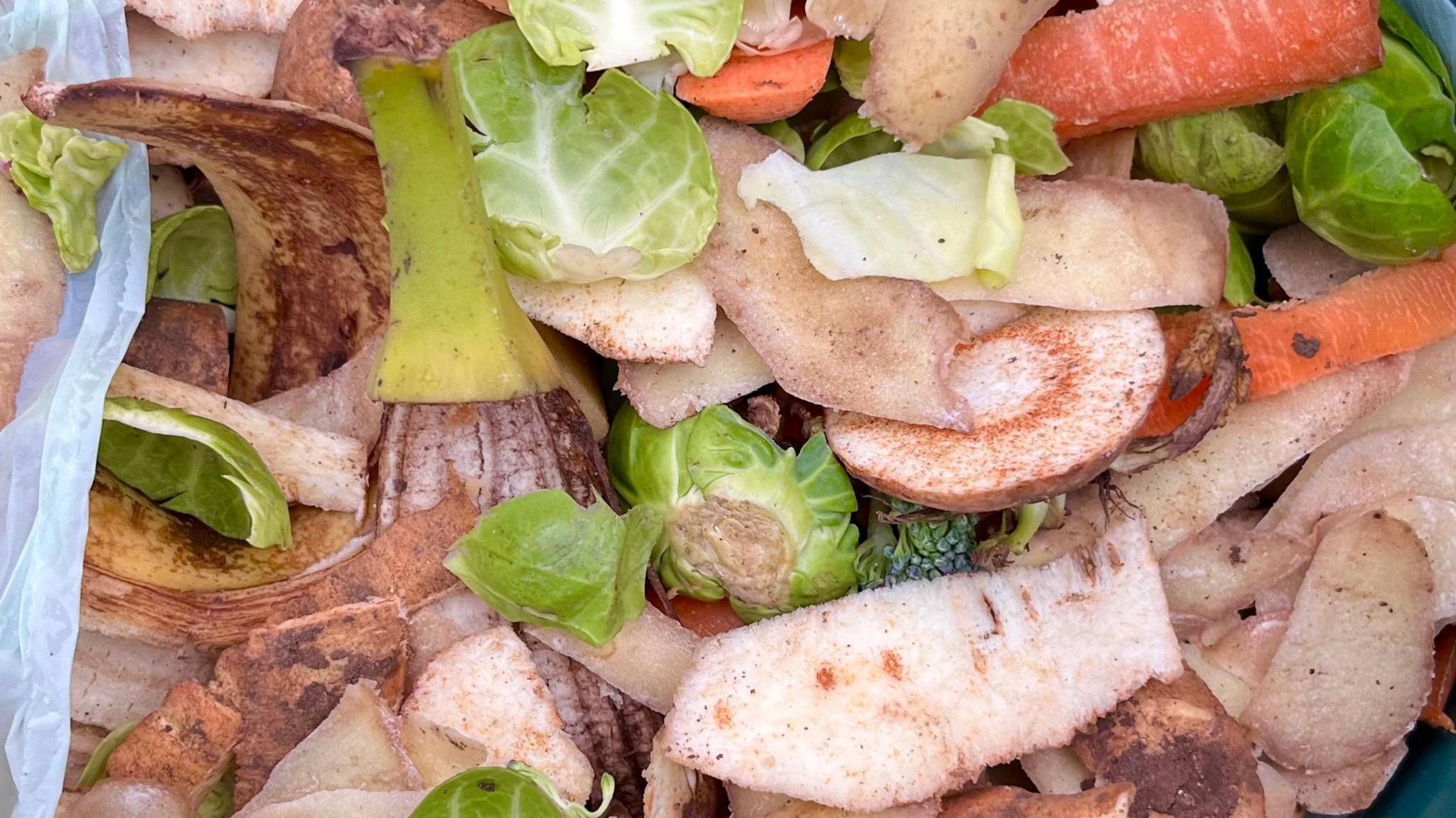'Frustrating' delays to food waste collections
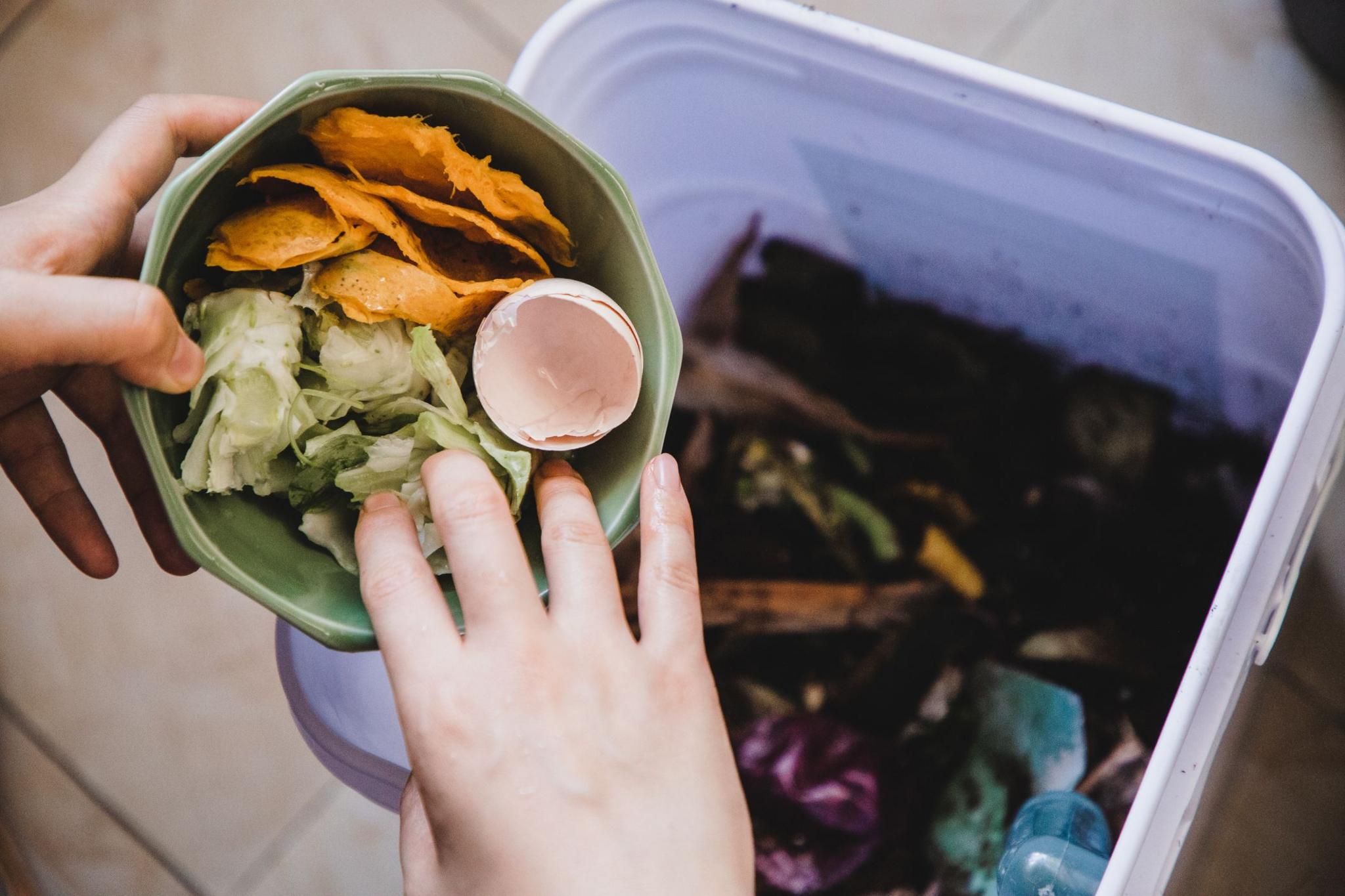
The government has said councils should implement weekly food waste collections from all homes from April next year
- Published
Some residents in the North East will have to wait for years for new food waste collections, because of fixed contractual obligations.
People living in South Tyneside, Sunderland and Gateshead will have to wait until 2039 for the separate collection of food bins, due to pre-existing waste contracts preventing changes without financial implications. Similarly, people in Cumbria will have to wait until 2034.
Councils have been given dispensation to miss the government deadline of April 2026, leading critics to say councils are being allowed to put commercial interests before environmental targets.
The government has insisted the policy would "end the postcode lottery" of bin collections.
The Department for Environment, Food and Rural Affairs (Defra) announced councils would have to start weekly separate food waste collections as part of its Simpler Recycling policy.
Councils in other parts of the North East say they are on track to implement collections over the course of 2026.
But South Tyne and Wear Waste Management Partnership, which covers South Tyneside, Sunderland and Gateshead councils, said they would miss the given deadline because of "long-term" arrangement in place.
'Totally devastated'
Councillor Nicky Gynn, Green Party Councillor for South Tyneside Council, said she had been "overjoyed" to hear of the government plans, which would have helped the area become more environmentally sustainable.
"I was totally devastated when I learnt that, due to the 25-year contract with the incineration company, South Tyneside would not be providing this service until 2039," she said.
She said changes to the contract would have cost the council "tens of millions of pounds", meaning it was "just not feasible".
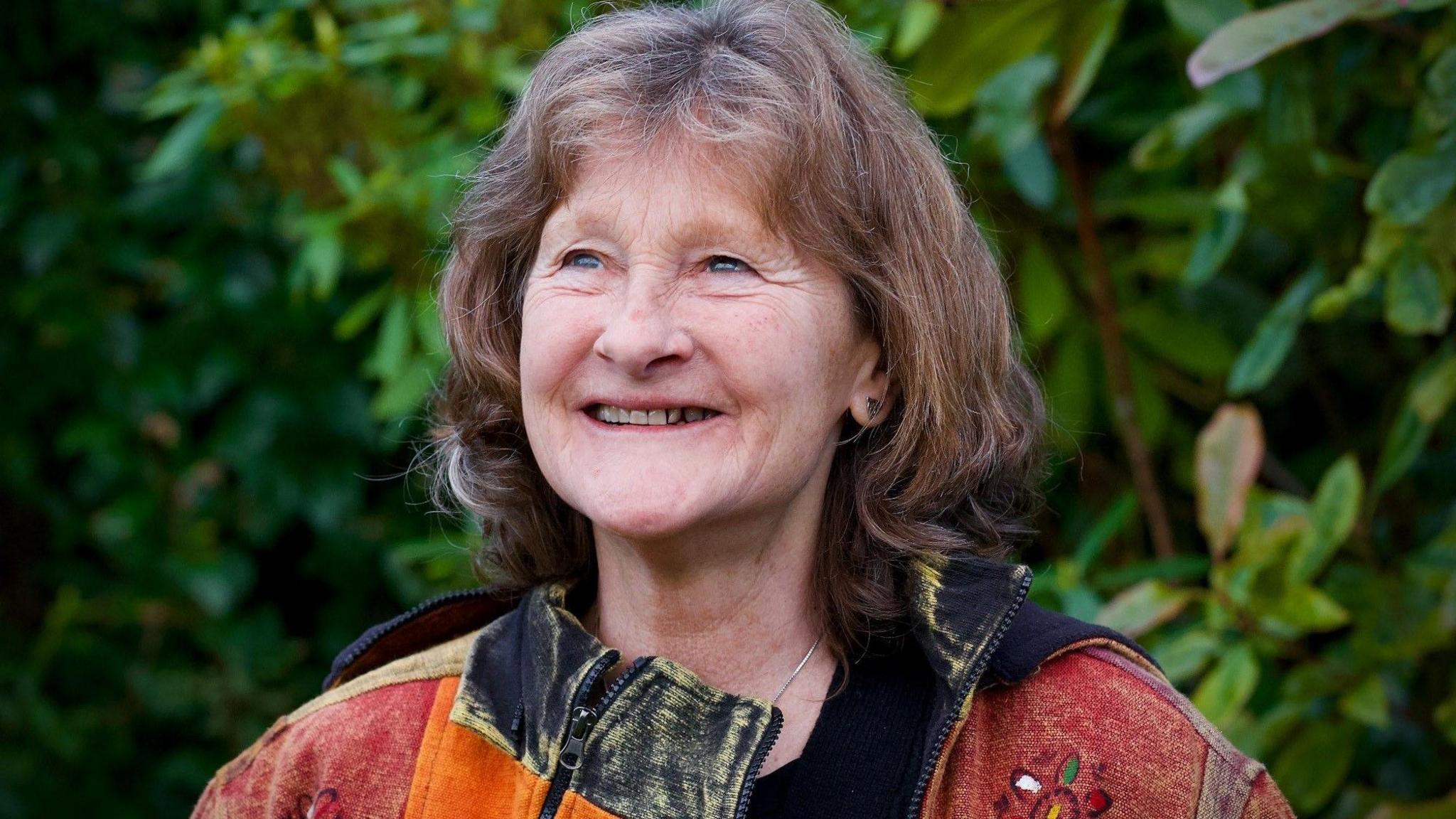
Councillor Nicky Gynn said she was "devastated" when she heard about the 13-year delay
A spokesperson for the waste partnership said all their household waste was sent to "an energy-from-waste facility, where it is used to create electricity", adding there were benefits to not changing collections now.
The spokesperson said: "We avoid the environmental impact of introducing an additional weekly collection; we also potentially save money as there's no immediate need to buy new bin lorries."
'Support waste reduction'
A similar situation has presented itself in Cumbria, with Cumberland Council and Westmorland and Furness Council saying they had agreed "bespoke transitional arrangements" with the government.
They said contract changes would expose them to "potentially significant" financial claims from the contractor, which the government would not underwrite.
Helen Davison, a Green Party Councillor at Cumberland Council, said she had been pushing the council to implement the changes before 2034 - when the 25-year waste contract ends.
"I'm really frustrated by it," she said.
She added the changes would mean "a better environment for us all".
"The thing about separate food waste collections is that actually what it does, as well as reducing the amount of emissions... it supports people to actually reduce the amount of food waste they're producing."
'Not enough time'
Dr Jane Midgley, a reader in urban social and economic practice at Newcastle University, said lengthy waste contracts between councils and private companies was the norm.
She said they ranged between 25 and 40 years because of the large investment required in facilities and treatment of waste.
"It's a massive change for local authorities as waste authorities to bring in this additional collection," she said.
Dr Midgley added councils had had a "tight timeframe" to implement changes, which were not easy to impose in a complex system.
"It's a really significant challenge."
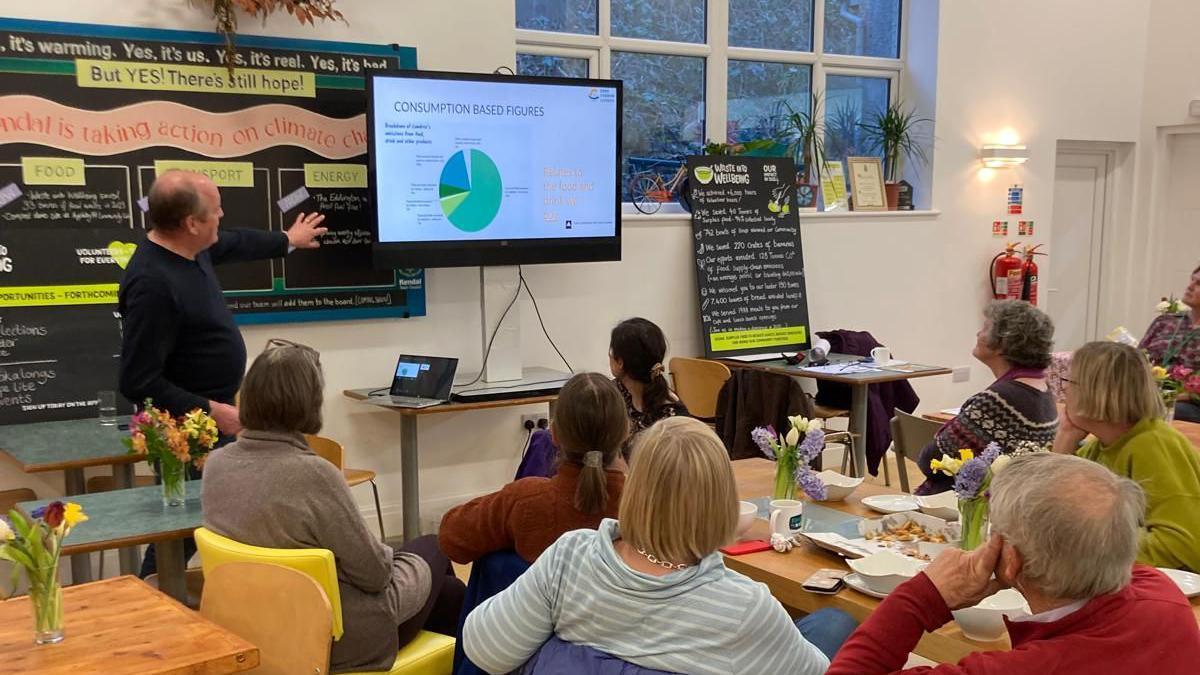
Nick Lancaster works with community works to raise awareness of food waste
Nick Lancaster, who supports businesses and charities with their sustainability goals, said 40% of all food produced in the UK was wasted, and the issue should be solved further up the chain.
"All we're doing is dealing with a symptom," he said, referring to the government plans for separate food waste collection.
Mr Lancaster sits on the waste group for the Zero Carbon Cumbria partnership - an organisation dedicated to reducing the region's carbon footprint.
He maintains reducing food portions and not overbuying when shopping helps both the environment, while also saving money: "From my perspective, it's about making sure you plan your meal and that you portion control it."
Defra said the changes next spring meant all residents would have "the same materials collected for recycling".
A spokesman said: "This government will end the postcode lottery of bin collections, end our throwaway society, and clean up our streets for good."
Dates for changes to food waste collections across the North East are as follows:
Darlington: Collections to start for all residents by April 2026
Durham: Collections to start from spring 2026, with a gradual rollout
Hartlepool: Collections to start for all residents by April 2026
Middlesbrough: Collections to be implemented in 2026, with more details to follow.
Newcastle: Collections will be implemented in 2026, but the council said there was uncertainty around procurement of new bins and bin lorries, which meant a date was not yet available.
Northumberland: The council is on track for collections to start in April 2026, however the authority said it has written to the government urging them to provide an extra £1.5m to help buy extra vehicles and support the extra service.
Redcar and Cleveland: Collections to start for all residents by April 2026
Stockton: Collections to start for all residents by April 2026
Follow BBC North East on X, external and Facebook, external and BBC Cumbria on X, external and Facebook, external and both on Nextdoor and Instagram, external.
Get in touch
Do you have a story suggestion for BBC North East & Cumbria?
- Published20 September
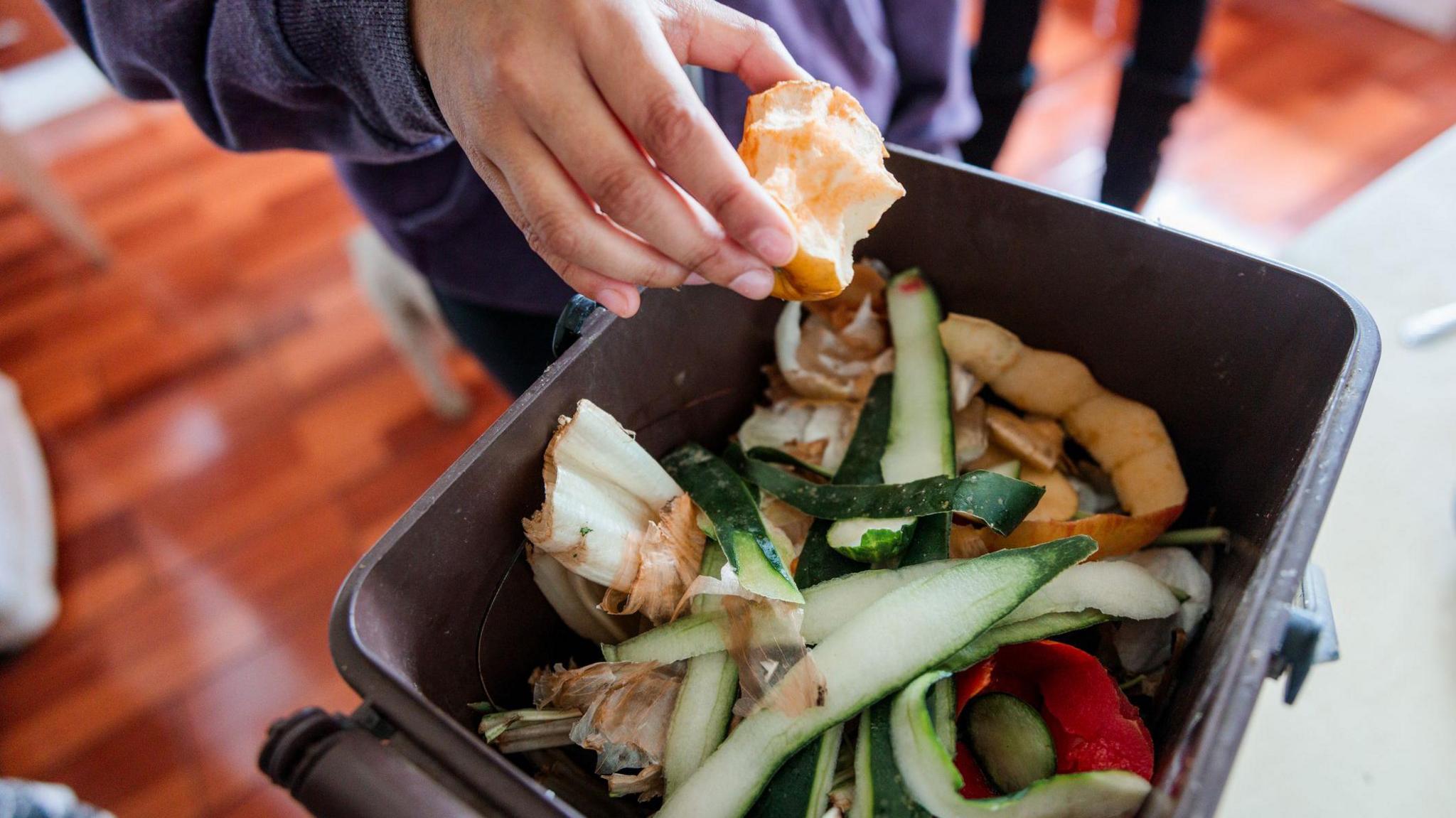
- Published11 August
